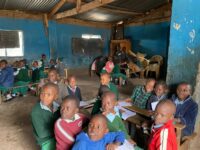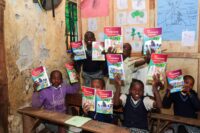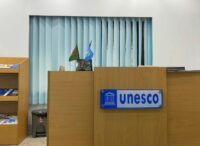Set Out from Afica
UncategorizedHer story is about lunch for children in slum.
She is studying in Columbia University, majoring in comparative education, focusing on international educational assistance. She went to Mathare in The Republic of Kenya in Africa this summer. She acted as a volunteer in Dream Building Service Association (DBSA), which is an international non-profit organization that works with underprivileged children and young people and disadvantaged groups around the world, especially in slum areas. She participated in the International Free Lunch Program.
“Before arriving, I had various preconceptions about this place. Quite a few worries and fears had also been lingering in my mind.” However, when she arrived, many kids came up to her and said “Hello!” “Welcome!” enthusiastically. Her fears disappeared at once.
The environmental and infrastructural conditions are quite inadequate. There is no access to electricity and internet in schools. Students are forced to rely solely on natural light that filters through the roof. Furthermore, one classroom is shared by three different grades, each with only a single textbook at their disposal.


“This is not an inspirational place where you can change your fate simply by working hard. Because of the constraints of the environment, it is very difficult for people in the slums to get out of this predicament. The vast majority can only continue to repeat the fate of their parents. After all, growing up healthy and safe has never been easy in this part of the world.”
However, there is also hopeful story here. There is a girl studied in this slum, became a university student, came back to here again and became a principal, sticked to education.
She visited more than 10 schools participating in the International Free Lunch Program, observing the implementation of the program and gain insight into various aspects of the schools.

She not only helped the lunch program, but also took detailed notes on each school’s teachers and students, facilities, finances and so on.
More than half of the children here come from single-parent families, and most are raised by single mothers alone. Women’s choices are extremely limited, and most of them can only make a living by doing laundry or domestic work, earning a meagre and unstable daily wage. They may choose to remarry or have another child in their quest for livelihood, resulting in some single mothers having to face the pressure of raising four to six children, which undoubtedly has a great negative impact on the children’s growth.
A series of questions circled around, as if caught in a cycle of fate, and there was no escape.
“The principal of the Keda school spoke of how the first school was built because the children did not have access to education, were idle all day and could easily go astray. After the school was built, they began to have things to learn and regained hope.”
Education is a silent nourishment that will eventually make a land grow.
So she launched with other volunteers, raising nearly 10000 euros to buy textbooks for children. Donating textbooks is not easy. Every step of the way, from fundraising and publicity, textbook selection, bookstore selection, etc., every step is a difficult test.

Her efforts aimed to provide not only lunch for their stomachs but also nourishment for their spirits.
After departure from Kenya, she went to interned in UNESCO in People’s Republic of Bangladesh. Here she is in charge of education in the refugee area.

“English is not widely spoken here”, “When it rains the city floods”… There are so many difficulties, but she still trying.

She said in the end of interview:
“Even in the poorest of lands, with food and education, there is the possibility of blooming. Hope for a better world.”
Hope for a better world.